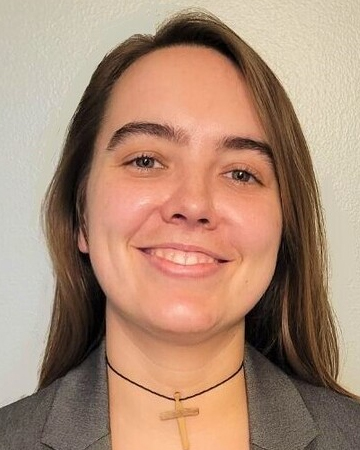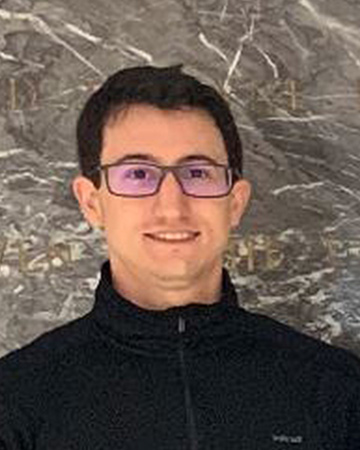People
Director

Clayton Neighbors, Ph.D.
Dr. Neighbors' work focuses on social and motivational influences in etiology, prevention, and treatment of health and risk behaviors. Outcomes of interest include alcohol and substance abuse, problem gambling, and intimate partner violence. Support for this research has been provided by the National Institute on Alcohol Abuse and Alcoholism, the National Institute on Drug Abuse, the National Institute on Mental Health, the Department of Defense, and the National Center for Responsible Gaming.
Research Interests
- Alcohol and substance use
- Social norms and their application to prevention and brief intervention
- Self-determination and susceptibility to social influences
- Models of intimate partner violence and aggressive driving and applications to intervention
- Spiritual and religious influences on behavior and mental health
- Event specific prevention
- Social comparison and social identity
- Implicit and explicit alcohol identity
- Expressive writing interventions
- Social Influence within Social Networks
Google Scholar :https://scholar.google.ca/citations?user=Blhrmp8AAAAJ&hl=en
ResearchGate: https://www.researchgate.net/profile/Clayton_Neighbors
Research Assistant Professor
Dipali V. Rinker, Ph.D.

Background:
B.A., Psychology, Trinity University, San Antonio, TX (2002)
M.A., Clinical Psychology, University of Houston-Clear Lake (2004)
Ph.D., Behavioral Sciences/Health Promotion, UT Health Science Center School of Public Health, Houston (2014)
Minor in Epidemiology and Biostatistics
Research Interests:
- Health and risk behaviors of emerging adult populations
- Brief interventions to reduce risky health behaviors and increase healthy behaviors
- How social networks contribute to the acquisition of health behaviors and cessation of risky behaviors
- Environmental correlates and policies that contribute to the risky and healthy behaviors of emerging adults.
Personal Bio:
I have a 8 year-old daughter and a 5-year-old son who keep me busy!
See/hide Publications and Poster presentations »
- Nguyen, N., Walters, S.T., Rinker, Dipali V., Wyatt, T.M., & DeJong, W. (2011). Fake ID ownership in a US sample of incoming first-year college students. Addictive Behaviors, 36, 759-761.
- Rinker, D. V., Lindsay, J.A. Schmitz, J.M., & Green, C.A. (2009). Factor analyses of the Allen Barriers to Treatment Instrument in a sample of women seeking outpatient treatment for substance abuse. Addictive Disorders and Their Treatments, 8(4), 185-190
ResearchGate: https://www.researchgate.net/profile/Dipali_Rinker
Affiliated Researcher
Chelsie M. Young, Ph.D.

Background:
B.A., Psychology, Eastern Illinois University, 2010
M.A., Experimental Psychology, College of William and Mary, 2013
Ph.D., Social Psychology, University of Houston, 2016
Academic Positions:
Postdoctoral Research Fellow and Lecturer, University of Houston, 2016-2018
Assistant Professor, Rowan University, 2018-Present
Research Interests:
- Developing empirically-supported strategies incorporating personalized normative feedback, motivational interviewing, and expressive writing to facilitate behavior change
- Examining mechanisms of action for behavior change such as the self-conscious emotions of guilt and shame, cognitive processing, and perceptions and norms to gain insight into how such behavior change strategies work and which components are most effective
- Exploring individual difference factors such as shyness, culture, drinking motives, and defensiveness as moderators of behavior change to better understand for whom such strategies are best suited
See/hide Publications and Poster presentations »
- Young, C. M., Pedersen, E. R., Pearson, A. D., & Neighbors, C. (2018). Drinking to cope moderates the efficacy of changing Veteran drinking norms as a strategy for reducing drinking and alcohol-related problems among U.S. Veterans. Psychology of Addictive Behaviors, 32, 213-223. doi: 10.1037/adb0000347
- Young, C. M., Neighbors, C., DiBello, A. M., Sharp, C., Zvolensky, M. J., & Lewis, M. A. (2016). Coping motives moderate efficacy of personalized normative feedback among heavy drinking U.S. college students. Journal of Studies on Alcohol and Drugs, 77, 495-99. doi:10.15288/jsad.2016.77.495
- Young, C. M., Neighbors, C., DiBello, A. M., Tomkins, M., & Traylor, Z. K. (2016). Shame and guilt proneness as mediators of the association between general causality orientations and depressive symptoms. Journal of Social and Clinical Psychology, 35, 357-370. doi:10.1521/jscp.2016.35.5.357
- Young, C. M., DiBello, A. M., Steers, M-L. N., Quist, M. C., Foster, D. W., Bryan, J. L., & Neighbors, C. (2016). I like people who drink like me: Perceived appeal as a function of drinking status. Addictive Behaviors, 53, 125-131. PMCID: PMC4679654 doi:10.1016/j.addbeh.2015.10.003
- Young, C. M., DiBello, A. M., Traylor, Z. K., Zvolensky, M. J., & Neighbors. C. (2015). A longitudinal examination of the associations between shyness, drinking motives, alcohol use, and alcohol-related problems. Alcoholism: Clinical and Experimental Research, 39, 1749-1755. doi:10.1111/acer.12799
ResearchGate: https://www.researchgate.net/profile/Chelsie_Young
Website: ChelsieMYoung.com
Postdoc
Mary M. Tomkins, Ph.D.

Background
B.S. Psychology, Abilene Christian University
M.S. Psychology, Abilene Christian University
Ph.D. Social Psychology, University of Houston
Email: mtomkins@uh.edu
Research Interests:
Mary Tomkins is a postdoctoral research fellow in the Social Influences and Health Behaviors lab. Her main research interest is social connectedness, specifically its association with well-being and prosocial behaviors and how it can be enhanced. She is also interested in interventions that can be developed to encourage virtue-based behavior and factors associated with moral behavior. In her spare time, she works on projects focused on religiousness, specifically how it is related to alcohol use and how it can be incorporated into brief alcohol interventions, the effects and buffers of ostracism, belongingness interventions, and the ways in which religion can be healthy or unhealthy.
See/hide Publications and Poster presentations »
Publications
- Tomkins, M. M., Neighbors, C., & Steers, M. N. (2018). Contrasting the effects of harmonious and obsessive passion for religion on stress and drinking: Give me that old time religion ... and a beer. Alcohol
- Tomkins, M. M., Neighbors, C., & Park., C. L., (2018) Expressing Discrepancies between Religious Affiliations and Drinking Reduces Drinking Intentions. Psychology of Religion and Spirituality
ResearchGate: https://www.researchgate.net/profile/Mary_Tomkins
Lab Supervisor and Research Coordinator
Alyssa Rice, B.S.

Background:
B.S. Psychology, University of Houston
Email: aarice2@uh.edu
Alyssa is the Lab Supervisor & Research Coordinator for the Social Influences and Health Behaviors Lab. As coordinator, she assists in recruitment and data management for several projects related to drinking, gambling, and other addictive behaviors. Alyssa graduated from the University of Houston with a B.S. in Psychology. Her research interests include community-level parenting interventions, trauma-informed care, and the influence of adverse childhood events on health outcomes.
Research Coordinator
Frida de Luna, B.S.

Background:
B.S. Psychology, University of Houston
Email: famorade@uh.edu
Frida de Luna is a Research Coordinator for the Social Influences and Health Behaviors lab. She assists with recruitment and project management for Project RAVEN. Frida is currently a graduate student in the Clinical Psychology Master's Program at the University of Houston – Clear Lake. Her main research focus is on the promotion of sexual health behaviors in young adults within the Hispanic/ Latin community. She examines the variables associated with fostering the development of healthy behaviors using developmental theories, especially the mechanisms by which people engage or do not engage in health behaviors.
Current Graduate Students
Joanne Angosta, M.A.

Background:
B.A. Psychology, from University of Nevada, Las Vegas
M.A. Psychology, University of Houston
Email: jangosta@central.uh.edu
Research Interests:
Joanne is in her sixth year of the social psychology doctoral program at the University of Houston. Her current research focuses on the influence of social identity on addictive health attitudes and behavior, social network methodologies, and the development of brief interventions to decrease problematic alcohol use. She is interested in understanding the people and groups that individuals may identify with, and how to use this information to promote healthy behavior.
See/hide Publications and Poster presentations »
No information is available at this time.
ResearchGate: https://www.researchgate.net/profile/Joanne_Angosta
Nicole Hall, B.A.

Background:
B.A. Psychology, Westminster College
Email: nahall@uh.edu
Research Interests:
Nicole is currently in her second year in the Applied Social and Health Psychology program. Broadly, her research interests include the intersection between moral psychology and health psychology. She is interested in how constructs like moral injury develop after traumatic events (e.g., intimate partner violence, occupational-related trauma) and influence mental health and risky behaviors.
Andrew Weinstein, B.S.

Background:
A.S. Criminal Justice, Jamestown Community College
B.S. Political Science, State University of New York the College at Brockport
B.S. Psychology, University of New Mexico
Email: apweinst@cental.uh.edu
Research Interest:
Andrew is currently a fifth-year doctoral student in the social psychology doctoral program at the University of Houston. His research interests focus on understanding cannabis use, the social norms of cannabis use among diverse populations, and motivations for and against cannabis use in order to develop brief interventions to reduce cannabis-related harms.
See/hide Publications and Poster presentations »
Publications/Presentations
- Bravo, A. J., Weinstein, A. P., Pearson, M. R., & Protective Strategies Study Team (in press). The relationship between risk factors and alcohol and marijuana use outcomes among concurrent users: A comprehensive examination of protective behavioral strategies. Journal of Studies on Alcohol and Drugs.
Research Gate: https://www.researchgate.net/profile/Andrew_Weinstein3